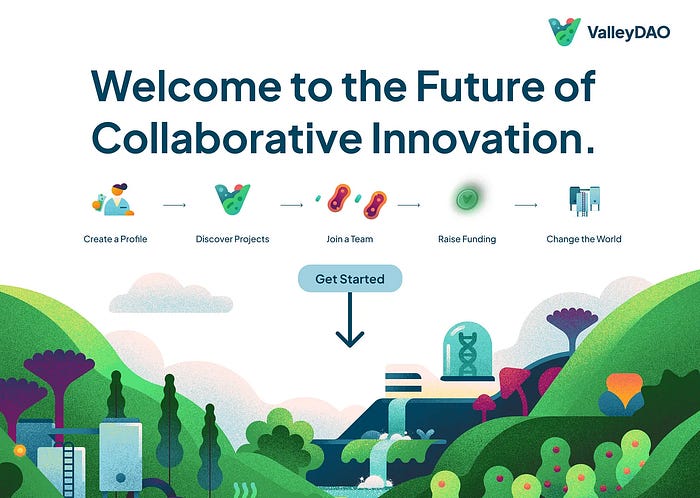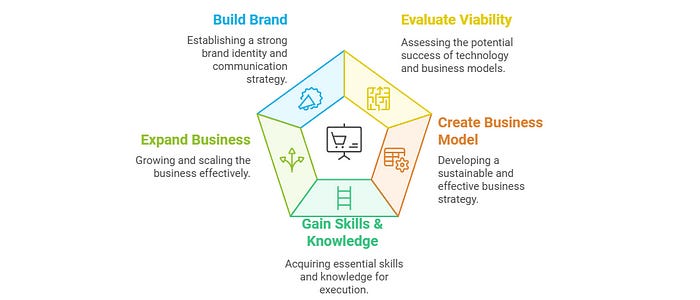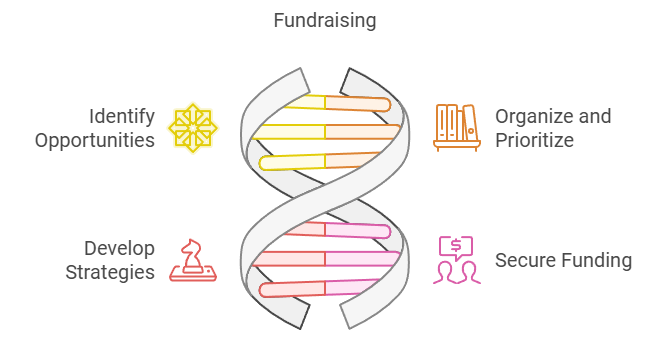Last month, Bio.xyz kicked off an exciting hackathon which challenges builders to develop new AI agents for the future of science. Running for 2 months, with over $100k in prizes up for grabs, teams from all over the world are assembling to submit innovative projects that can disrupt the way in which we do science. The scope is pretty broad, giving plenty of opportunity for creative approaches to develop novel AI-driven research pipelines. Participants are encouraged to “solve real-world challenges by building tools that help organize scientific information, generate meaningful connections between research, and produce novel hypotheses”.
This was a perfect opportunity for our team since we had spent a lot of time over the past year understanding the real-world challenges faced by researchers in our field and have already started building some pretty interesting things. One of the key drivers for embarking on this journey back in 2024 was the realisation that funding research alone wasn’t going to be enough to achieve our mission. Deep tech has a notoriously high rate of failure and academic research can be incredibly difficult to apply in real world settings. If we want to accelerate the development and deployment of new biotechnologies that address climate change with our tiny community fund, we have to think beyond the bank and attempt to do something truly disruptive.
But what exactly would disrupt research translation? That was our million $GROW question. In an effort to identify the gaps and obstacles, we interviewed and surveyed over a hundred researchers, entrepreneurs, tech transfer specialists, students and scientific communities. Safe to say that no two interviews were alike, however, we were able to pick apart some commonalities between them and group the challenges into three distinct categories: Technology Development, Business Development and Fundraising.
The Problem(s)
Business Development
Researchers and founders need a lot of support in understanding the business side of deep tech given that there is very little formal training for this within academia. It’s a harsh reality that most companies will fail, and even more technologies won’t even make it past the first step since regardless of the clever science, many of them will be economically unviable. Sadly, the question of economic viability is one that is ignored in a lot of academic research until the later stages and by that time, millions have already been spent.
Technology Development
Researchers are often highly specialised technicians that are really talented at solving technical challenges and optimising their approach. Unfortunately, these talents are sometimes misdirected and they end up developing technologies that have no place in the real world as it stands today. Researchers often develop technologies that are misaligned with user needs or real-world constraints because they fail to engage stakeholders early in the research process, leading to solutions that overlook practical considerations and end-user priorities. It is no surprise that these solutions do not translate into viable businesses.
And I’m not throwing any shade to researchers at all here. At the end of the day, it is not in their job description or the incentive structure that they operate within. But once a researcher decides that they want to turn their work into something meaningful, it is all too little too late.
Fundraising
It goes without saying that all scientific R&D needs funding to succeed. Whilst ValleyDAO does actively fund research, our treasury is a drop in the ocean of the overall research funding available and so we’re just not able to make a significant difference here all things considered. So, we dug deeper to try to ascertain why some projects were not able to find suitable funding. In many cases, it came down to product-market fit. There are thousands of funding sources available globally and so how do you identify the best ones — the ones where your submission outshines the others? The ones where your proposal is seen by the right person who deeply believes in your approach.
Rather than simply address one of these categories and leave the rest to fate, we believed that there was likely a way to provide support in all three at the same time. Perhaps it was ruthlessly ambitious, or perhaps we really were onto something. So we put on our time travelling hats and tried to imagine what that solution might look like.
Our Solution

Our idea went through many different iterations, starting with technology trees, collaboration frameworks, a marketplace for freelancer scientific incubation but all of these ideas had hidden complexities or strong reasons why they either would never work or wouldn’t work right now. What we needed was something simple, something elegant and, most importantly, something familiar.
After many months of research and design iterations and onboarding of a handful of pilot projects, what we eventually landed on was ‘Phlo’: A comprehensive platform for research translation. A platform that seeks to deliver on some of the most important outcomes under each of the three pillars. They are as follows:
Business Development

- Help teams evaluate the viability of their technology and business model.
- Help teams create a viable business model.
- Help teams gain the necessary skills and knowledge to execute on their business model.
- Help teams expand with their business.
- Help teams build their brand and effectively communicate their value proposition.
Technology Development

- Help teams/individuals evaluate the viability of their technology.
- Help teams/individuals design a viable technology.
- Help teams/individuals to build their technology.
- Help teams/individuals expand their intellectual capacity and collaborate with others.
- Help teams/individuals stay informed about the latest developments in their field.
Fundraising

- Help individuals/teams identify relevant funding opportunities.
- Help individuals/teams organise and prioritise the most promising fundraising opportunities.
- Help individuals/teams develop and execute fundraising strategies.
- Help individuals/teams secure funding for their research.
To make things even easier to remember, I’ve formulated a single purpose statement for Phlo for each pillar:
- “Phlo will make it easier and faster for anyone with an idea or invention to build a winning team and business model and sell that business to people that can fund its inception.”
- “Phlo will help scientists shape their research in the pursuit of truly transformative technologies.”
- “Phlo will help close the translational gap by making capital more accessible for early and middle stage research projects.”
Now all of this is great but how do we actually intend to deliver you might be asking?
Put simply, we’re building out individual tools and workflows that leverage the best of AI and community to deliver those outcomes. All of these tools will be accessible from a centralised research project management dashboard and will guide users on how to progressively de-risk their project and ultimately make it commercially viable. But we’re not just stopping there. What we ultimately want to create is an ARI (Artificial Research Intelligence) agent that knows everything about your project and can take into account all of the nuances and intersectional information a researcher/entrepreneur needs to process 24/7. Think of it like Jarvis but for translational research.
I know this sounds like science fiction and believe me a year or two ago I would’ve agreed with you. However, the pace of AI developments is ever-growing and we are already capable of some utterly crazy things. We are fully aware that this is a mammoth task but in January, we hired our first full-time developer to get the wheels in motion and we’ve already made significant progress. We’ve started building out the individual capabilities of our research platform and are now starting to connect them together to create our omnipotent research translation AI agent.
Check out the video demo of our first Research Design agent (Transl8) here:
Hackathon Focus
So, you may be wondering by now what our plan for the hackathon is? Well, we’ve conducted our first round of testing and feedback for Transl8 and are ready to take it to the next level. The beta version was limited to a single run, 10 parallel research queries and did not have any additional context on the research project from the business development or fundraising perspective. Our plan is to take what we’ve built already and scale it up to see just how far we can go. We’ve already made some important updates this week which include:
- Front-end implemented for the chat with ARI
- User feedback system and option to rerun research queries with additional context
- Parallel processing of independent research queries to cut runtime down by up to 50%
- Native presentation of the literature reviews so you don’t need to leave Phlo (with the additional option to download PDFs)
We’ll be uploading a video demo of these updates and more next week so stay tuned!
Next Steps
Next week we plan to increase ARI’s capabilities by:
- Incorporating a new data structure for project details and research results that allows efficient context zooming
- Closing the feedback loop by enabling iterative design. In other words, once you’ve carried out the research recommendations, you can run the pipeline again to generate a new set of recommendations. ARI grows as your project progresses.
- Develop a new visualiser to track research progress and direction. Something reminiscent of the Phlo diagrams/tech trees we’ve been working on for other applications but instead visualising the flow of knowledge and potential research pathways.
If you’re interested in what we’re building and want to be one of the first to try it out, you can sign up for early access here.
And if you want to get involved in shaping the future of translational research, then don’t be a stranger. Drop into our discord server and say hi!
Join ValleyDAO!
ValleyDAO is leading the charge in decentralized science, and we invite you to join us in this groundbreaking journey. With $GROW tokens, you can get involved in funding research projects, gain exposure to the success of those projects, and have a voice in the future of DeSci. Whether you’re a researcher, enthusiast, or investor, there’s a place for you in our growing community.
As we continue to build, we remain committed to our mission: to fund and accelerate climate-focused biotech research, empowering scientists to develop real-world solutions for planetary health.












